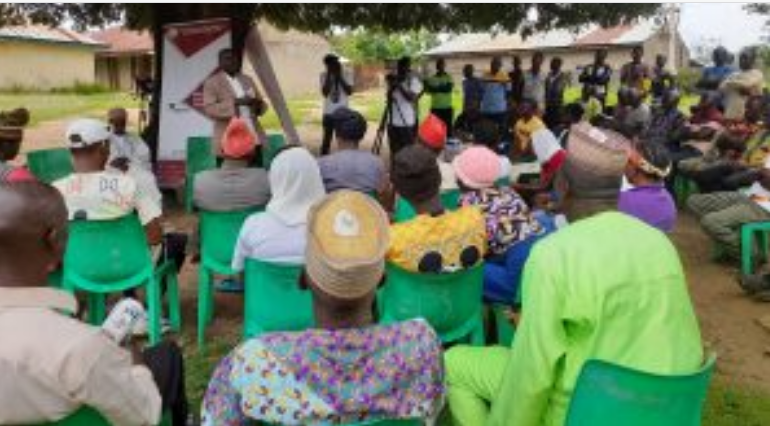Berom and Fulani stakeholders in Rim community, Riyom Local Government Area (LGA) of Plateau, have met towards finding solutions to conflicts for lasting peace in the community.
The meeting held on Wednesday at Rim, was at the instance of the Youth Initiative Against Violence and Human Rights Abuse (YIAVHA), a Jos-based organisation.
Speaking, Da Gyang Dahoro, the Village Head of Rim, thanked the organisers for calling the meeting, saying that the forum had provided them the opportunity to come together and discuss the process that would bring peace to the community
“Before now, the Beroms and the Fulani in this community hardly meet, and even if we meet to discuss peace, it has always ended in deadlock and sometimes aggravates the attacks and counter attacks.
“So, this meeting today has shown that we are all ready to live in peace since we are able to come together after a long while.
“We have talked on areas that we have hurt one another so we can make amends in order to achieve peace,” Dahoro said.
The village head, who explained that in the past the community had been peaceful, took time to narrate how both ethnic groups were leaving harmoniuosly.
He explained that the meeting would also go a long way in addressing the issue of no-go-areas in the community, noting that it would promote mutual trust among the people.
“We have lived together with our Fulani brothers and sisters and relating very well for a long time.
“We attended same schools, hospitals and markets; we collectively worked on each other’s farms as one people.
“But today the story is different because we refused to come together as one people. Today’s meeting will go a long way towards addressing that,” he said.
Dahoro, however, called on the government to work towards ensuring that the lands of the locals that were forcefully taken over by the Fulani be returned to them, insisting that such move would FastTrack the peace process.
On his part, Malam Adamu Ciroma, who spoke for the Fulani, also thanked YIAVHA for the initiative, adding that by God’s grace, the meeting had forged the beginning of the return of total peace to the community
Ciroma, who agreed with the village head, said that Rim was once a peaceful community where they lived as brothers and sisters devoid of religious, political or ethic differences.
“I was born here and as far as I know, we have lived like brothers and sisters in the past.
“However, so many things later went wrong; but today’s meeting is a milestone and an indication that peace has returned to this community,” he said.
He called on parents to expose the bad eggs among their children, particularly when they had committed grievous offences against the land.
He also advised the Fulani and the Berom youths to collaborate and unite, in checking incidences of criminality and other vices in the community.
Ciroma further advised young people to desist from drug abuse, alcoholism and other social vices capable of throwing the community into crisis.
Speaking, Miss Sheku Chundung of YIAVHA, said that the meeting was part of its ”Preventing Violence Extremism-Extra ( PVE-Extra) project, being funded by the GIZ-iDove.
Chungdung explained that the project, aimed at penetrating communities that had been affected by conflicts, with the aim of creating an avenue for collaboration towards achieving peaceful coexistence.
“We are carrying out this project in 24 communities within four LGAs of Plateau, and these are communities that have been segregated because of violent conflicts
“We are trying to build their capacities so that they can now collaborate to defend pluralism since they have been broken communities.
“Young people are in the forefront because we feel that they should participate actively and collaborate, to take over the space and promote pluralism,” she said.
According to Chundung, the project has a component of intergenerational story telling, where the older generation will tell the stories of how they lived in peace in the past to the younger ones, to enable them learn and adopt such strategies.
She also said the project had the component of climate change, where communities were sensitised on ways to take care of their environment to make it habitable for all.
“We believe that climate change has affected peaceful coexistence among farmers and herders, and so we included the component of climate change in order to educate the people to take care of their environment,” Chundung added.
Reports have it that highlights of the event was a tree planting exercise by members of the community, as a symbol of peace and togetherness.
